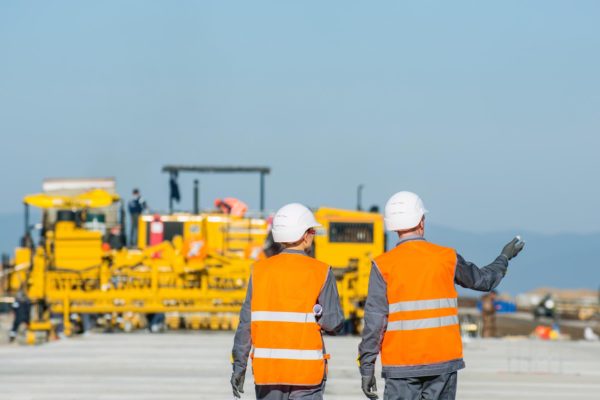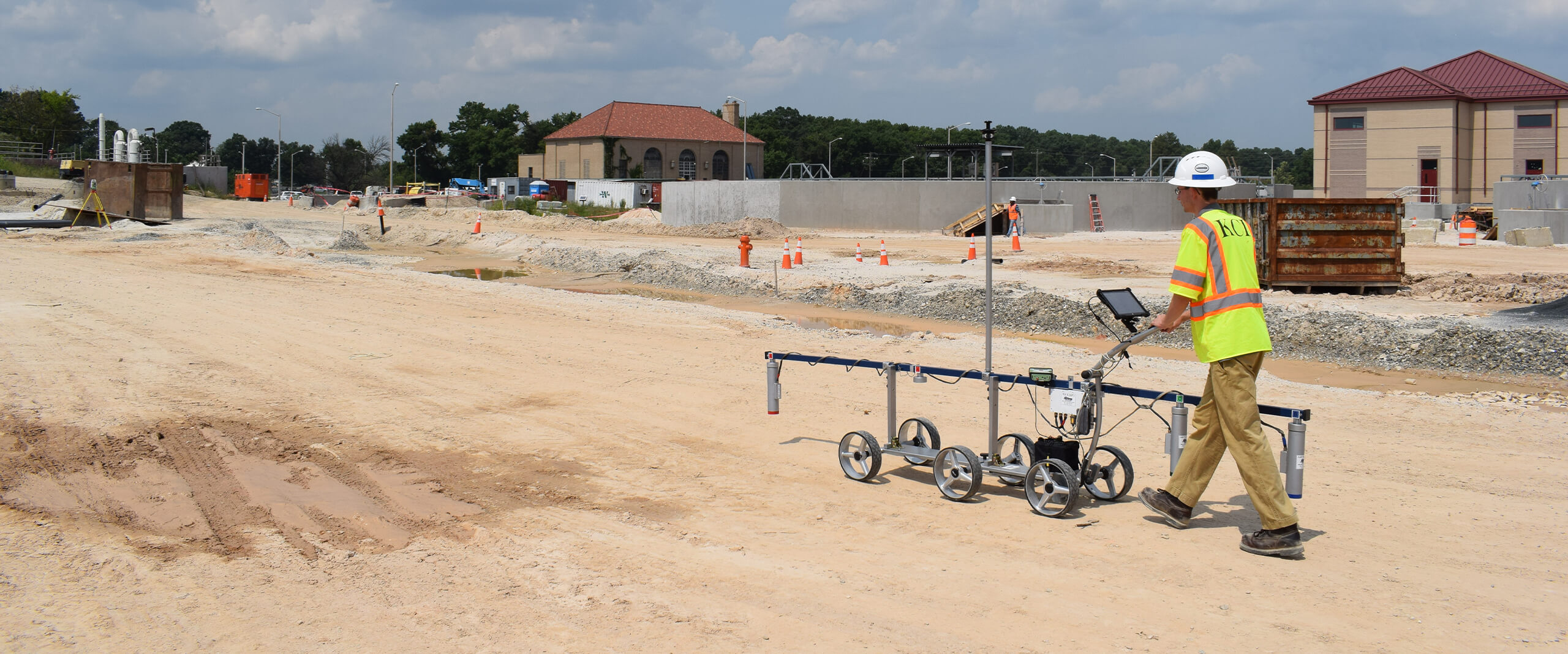Tailings Engineer: Crucial Expertise for Sustainable Waste Management in Mining
Tailings Engineer: Crucial Expertise for Sustainable Waste Management in Mining
Blog Article
Comprehending the Important Duty of the Geotechnical Market in Modern Construction Projects and Framework Advancement
The geotechnical market is a keystone of modern-day building and facilities growth, giving important understandings into soil behavior that directly influence task results. Via advanced soil assessments and innovative engineering services, geotechnical experts not only make sure architectural stability however likewise address sustainability worries amidst progressing ecological requirements.
Value of Dirt Evaluation
Soil evaluation plays an essential role in the geotechnical industry, serving as the structure for educated decision-making in building and construction tasks. Exact dirt analysis is crucial for establishing the viability of a site for various kinds of frameworks, consisting of domestic homes, commercial structures, and bridges. By assessing soil composition, thickness, dampness, and stamina content, engineers can anticipate possible difficulties and reduce risks related to ground instability, disintegration, and settlement.
The evaluation process generally entails a collection of tests and monitorings that supply important information regarding the subsurface conditions. This information educates the style and building procedures, making sure that frameworks are improved solid ground with adequate support. Furthermore, recognizing the soil profile enables engineers to pick suitable construction techniques and products, optimizing source usage and decreasing costs.
In enhancement to ensuring architectural stability, soil evaluation adds to ecological sustainability. By identifying prospective contamination or negative impacts on bordering ecological communities, engineers can apply approaches to safeguard these natural deposits. Generally, comprehensive dirt assessment is essential in the geotechnical field, underpinning the safety and security, performance, and environmental responsibility of construction tasks.
Secret Geotechnical Strategies
A selection of key geotechnical strategies are utilized to improve the stability and examine and efficiency of construction sites. One fundamental method is soil tasting and screening, which permits designers to determine the chemical and physical properties of the ground. This information is critical for making informed choices relating to structure style and construction methods.
An additional crucial strategy is website characterization, which entails the thorough evaluation of soil and rock conditions via approaches such as borehole boring and in-situ testing. Techniques like Criterion Penetration Examinations (SPT) and Cone Penetration Tests (CPT) provide valuable data on soil toughness and stratigraphy.
Ground enhancement techniques, such as dirt stablizing and grouting, are additionally vital in enhancing the load-bearing ability of weak soils. These approaches can alleviate settlement and boost general website conditions.
Additionally, incline security analysis is essential for recognizing prospective landslide risks and making certain the security of excavations. This evaluation typically employs mathematical modeling and limit stability techniques to predict dirt behavior under different conditions.
Integrating these geotechnical strategies into building and construction planning not just optimizes task outcomes yet likewise makes certain the long-term sustainability of framework development.
Influence On Building And Construction Safety

Additionally, effective geotechnical engineering involves applying mitigation approaches for identified dangers. This might include soil stabilization techniques, maintaining frameworks, or drainage systems to ease hydrostatic stress. By attending to these variables, construction groups can reduce the probability of crashes and enhance worker security.
In addition, continual monitoring of site conditions is important throughout construction. Geotechnical instruments can provide real-time data relating to ground activity and security, allowing for timely interventions when required.
Fundamentally, the geotechnical sector plays a crucial role in safeguarding building tasks. By prioritizing ground integrity and employing extensive evaluation approaches, the geotechnical field not just shields the labor force yet additionally adds to the longevity and reliability of built framework.
Sustainability in Geotechnical Practices

In addition, geotechnical designers are currently using sophisticated technologies, such as geosynthetics, which improve soil security while lowering the quantity of product required. This not just saves sources but additionally leads to less waste generation (tailings engineer). The assimilation of sustainable design concepts right into geotechnical engineering motivates using renewable resource resources in building and construction procedures, even more reducing carbon exhausts
In addition, complete site assessments are essential for recognizing prospective environmental impacts before building begins. By carrying out these assessments, geotechnical professionals can create techniques that mitigate damaging impacts, guaranteeing conformity with environmental laws. Overall, the focus on sustainability within geotechnical practices not just adds to the long life and resilience of framework however additionally promotes a liable method to land and source administration. This dedication is important for cultivating sustainable growth in the modern-day construction landscape.
Future Trends in Geotechnical Engineering
Development is driving the future of geotechnical engineering, as emerging methodologies and technologies improve the market. The integration of advanced information analytics and expert system is established to change site investigation and threat analysis, making it possible for designers to make more informed decisions based on real-time data. The use of geosynthetic products is gaining grip, offering lasting remedies that boost dirt security and lower environmental effect - geo tech engineer.
An additional substantial pattern is the adoption of automated and robot systems for tracking and construction processes. These modern technologies not only improve precision however also improve safety by decreasing human participation in hazardous settings. Furthermore, the implementation of Structure Information Modeling (BIM) in geotechnical layout helps with boosted partnership amongst stakeholders, enhancing task shipment and reducing prices.
As climate adjustment positions brand-new challenges, the sector is increasingly concentrating on resilience and flexibility in design methods, ensuring facilities can withstand severe weather events. Ultimately, the ongoing trend towards sustainability will certainly drive advancement in eco-friendly products and approaches, aligning geotechnical design with more comprehensive ecological objectives. Collectively, these patterns will certainly form a more efficient, sustainable, and durable geotechnical landscape for future tasks.
Conclusion

The geotechnical market is a cornerstone of modern-day building and construction and facilities development, providing critical understandings right into soil actions that directly affect job outcomes. consulting engineer.Soil assessment plays an essential function in the geotechnical industry, offering as the foundation for educated decision-making in building projects. On the whole, detailed soil analysis is vital in the geotechnical field, underpinning the safety and security, effectiveness, and ecological obligation of construction tasks
Building safety and security is substantially affected by geotechnical methods, as the security and integrity of the ground straight affect the total safety of a building site.In final thought, the geotechnical sector is important in modern-day building and framework development, supplying critical analyses that guarantee architectural honesty and security.
Report this page